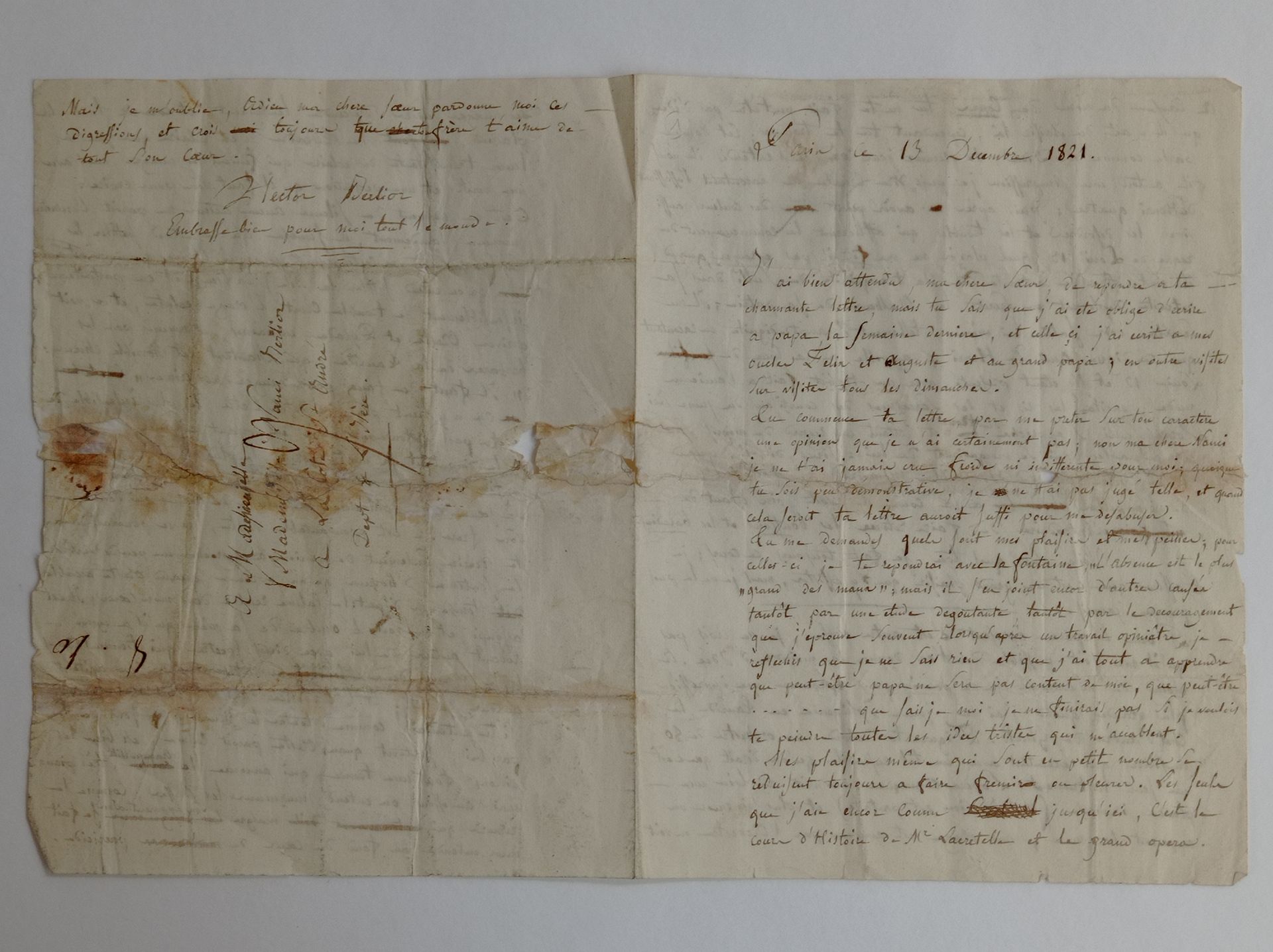Description
BERLIOZ (Hector).
Autograph letter signed to his sister Nanci Berlioz, dated Paris, this 13 December 1821, 3 p. ¼ in-4, autograph address. Remarkable letter of youth, intimate and musical, written at 18 years old. The young Berlioz had been in Paris since October, where he was to begin medical studies, while taking courses in literature for his own pleasure. He first apologizes for his delay in replying, and then disabuses his sister of the idea: ... "I never thought you were cold or indifferent to me; although you are not very demonstrative, I did not judge you to be so" (...). In Paris, he is in prey to evils... "caused sometimes by a disgusting study, sometimes by the discouragement that I often feel when after a stubborn work I reflect that I know nothing and that I have everything to learn..." On the other hand, he tastes extremely..." the course of History of Mr. Lacretelle and the great opera. "He then launches into a long evocation of this course, quotes anecdotes and assures: This man speaks like a God (...) It is a great pleasure to attend, but I can almost never do it. " The whole of the second half of the letter is occupied by the extraordinary impression made on him by Gluck's Iphigénie en Tauride, which he had heard on 26 November at the Opéra. This deeply felt page, which seems to announce Berlioz's entire musical career, should be quoted in full: "Unless I fainted I could not have felt a greater impression when I saw Iphigénie en Tauride, Gluck's masterpiece, played. Imagine first an orchestra of 80 musicians performing with such an ensemble that it seems to be a single instrument. The opera begins: we see in the distance an immense plain (and the illusion is perfect) and further away we see the sea, a storm is announced by the orchestra, we see black clouds slowly descending and covering the whole plain, the theater is lit only by the trembling glow of lightning splitting the clouds, but with a truth and a perfection that you have to see to believe; it is a moment of silence, no actor appears, the orchestra murmurs dully, it seems that one hears whistling winds (as you certainly noticed the winter when one is alone that one hears whistling the wind) well it is that perfectly (...)." He shows himself very sensitive to the orchestration, and gives details on this subject: "If you could hear how all the situations are painted by him [the orchestra], especially when Orestes appears calm, well the violins make a holding (?), which announces the tranquility, very piano but underneath one hears the bass whispering, like the remorse which in spite of its apparent calmness is still heard in the heart of the parricide... " Correspondance générale, éd. de P. Citron, t. I, letter 10, p. 34. Restored central tear, some missing parts.
You may also like
